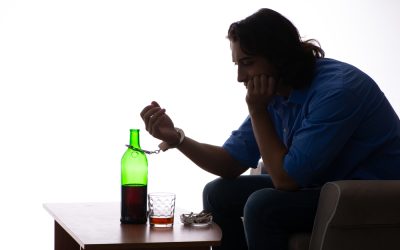It was days after I moved to Southern California that I started something I swore would never occur. For twenty years, I lit, puffed and tossed to the ground the smoky sticks. Which brings me to the biggest health crisis on the planet today – vaping, and the ticking time bombs vaping has implanted in the hundreds of millions who do it. The location should be non-threatening and comfortable for the individual. It could be a home, a neutral family friend’s place, or even a professional setting recommended by the interventionist.
Treating Alcoholism
- When someone spends a lot of time drinking (and recovering from drinking), quitting or cutting down can leave a huge hole in their lives.
- It’s also vital to ensure nothing in prepared statements or letters crosses a line or is too hostile to your loved one.
- It’s tough to watch someone struggle with a drinking problem and destroy their life.
- This will give them an opportunity meet other peers in recovery, discuss real world situations with sponsors and continue on their journey to long-term sobriety.
- Helping someone with an alcohol use problem may be a challenge, but it is possible.
- It’s common to hear them say, “The only reason I drink is because you…”
Witnessing your loved one’s drinking and the deterioration of your relationship can trigger many distressing emotions, including shame, fear, anger, and self-blame. Your loved one’s addiction may even be so overwhelming that it seems easier to ignore it and pretend that nothing is wrong. But in the long run denying it will only bring more harm to you, your loved one with the problem, and the rest of your family. Alcohol abuse and addiction http://www.flashgamesclub.ru/quest/museum.htm (also known as “alcohol use disorder”) doesn’t just affect the person drinking—it affects their families and loved ones, too. Watching a friend or family member struggle with a drinking problem can be as heartbreakingly painful as it is frustrating. Your loved one may be disrupting family life by neglecting their responsibilities, getting into financial and legal difficulties, or mistreating or even abusing you and other family members.
Conduct a Brief Intervention: Build Motivation and a Plan for Change
We strive to create content that is clear, concise, and easy to understand. It also may be right to ask your loved one to seek support from a group such as Alcoholics Anonymous. It’s very important to work with a professional for an intervention to succeed. http://www.kidsunity.org/articles/sdvg/lechenie_sdvg/264-lekarstva-dlja-junykh-dush.html This is especially true if you think your loved one may react violently or harm themselves. A state or local government increases the tax on the sale of alcohol, thereby increasing the cost of alcohol and decreasing the affordability of drinking.
- This may be because the pleasure center of a teen’s brain matures before their capacity to make sound decisions.
- No matter the response, you should remain calm and keep the conversation on track.
- They are led by health professionals and supported by studies showing they can be beneficial.
- Every intervention is unique, so you can change things to make it personal and relatable for your loved one.
- On Sunday mornings as a kid at Valley West, Simi was my favorite.
Provide Information About Alcohol Treatment
Unfortunately, this usually results in leaving those family members feeling lonely and frustrated. Recovery can take a long time, so you may need ongoing treatment. An important first step is to learn more about alcohol use disorder and your treatment options. With the help of an intervention https://www.divi.ru/tv/lcd/32_toshiba_32wl58r.shtml specialist, you can prepare for both negative and positive reactions from your loved one. Specialists can draw on their experience to help you understand common reactions, as well as how you should respond to them. In most cases, it’s best to keep the intervention group small.

This may involve researching different intervention models and working with a professional interventionist to determine the best approach for your loved one. This model can be especially effective for individuals who are resistant to change and who may need a more confrontational approach. If you feel like your loved one may be struggling with alcohol addiction, it is important to stay alert for signs and symptoms that may indicate a need for Intervention. Family and friends can intervene before the situation becomes more severe by paying attention to any changes in their behavior, personality, or physical health. Many addiction treatment providers limit contact with those outside the program to one degree or another.
The children and spouses of alcoholics suffer, too, because they often encounter disruptive behaviors, have unhealthy dynamics in the home, and worry about their loved ones. Read on to learn more on family intervention for alcoholism and how to do an intervention with a family member. As the saying goes, ‘Teamwork makes the dream work.’ The first step in organizing an effective intervention is assembling a team. A competent intervention team comprises individuals who care about the person struggling with addiction and are invested in their recovery. Team members could be family, close friends, or anyone else who can share meaningful, firsthand experiences of how the person’s addiction has affected them. Working with an addiction professional, such as a licensed alcohol and drug counselor, social worker, psychologist, psychiatrist, or interventionist, can help you organize an effective intervention.

Signs it is Time for an Alcohol Intervention

For example, inpatient rehab is typically recommended for more serious cases of alcoholism. An inpatient rehab provides 24/7 care for your loved one and offers an array of services such as alcohol detox, counseling, activities, support groups and medication-assisted therapy. After successfully completing rehab, your loved one will be referred to various on-going treatment programs in your community. This will give them an opportunity meet other peers in recovery, discuss real world situations with sponsors and continue on their journey to long-term sobriety. These organizations welcome inquiries from concerned friends or family members of individuals with alcohol use disorders. One can simply call the organization, contact them by email, contact them via their website, or make an appointment to show up in person.
